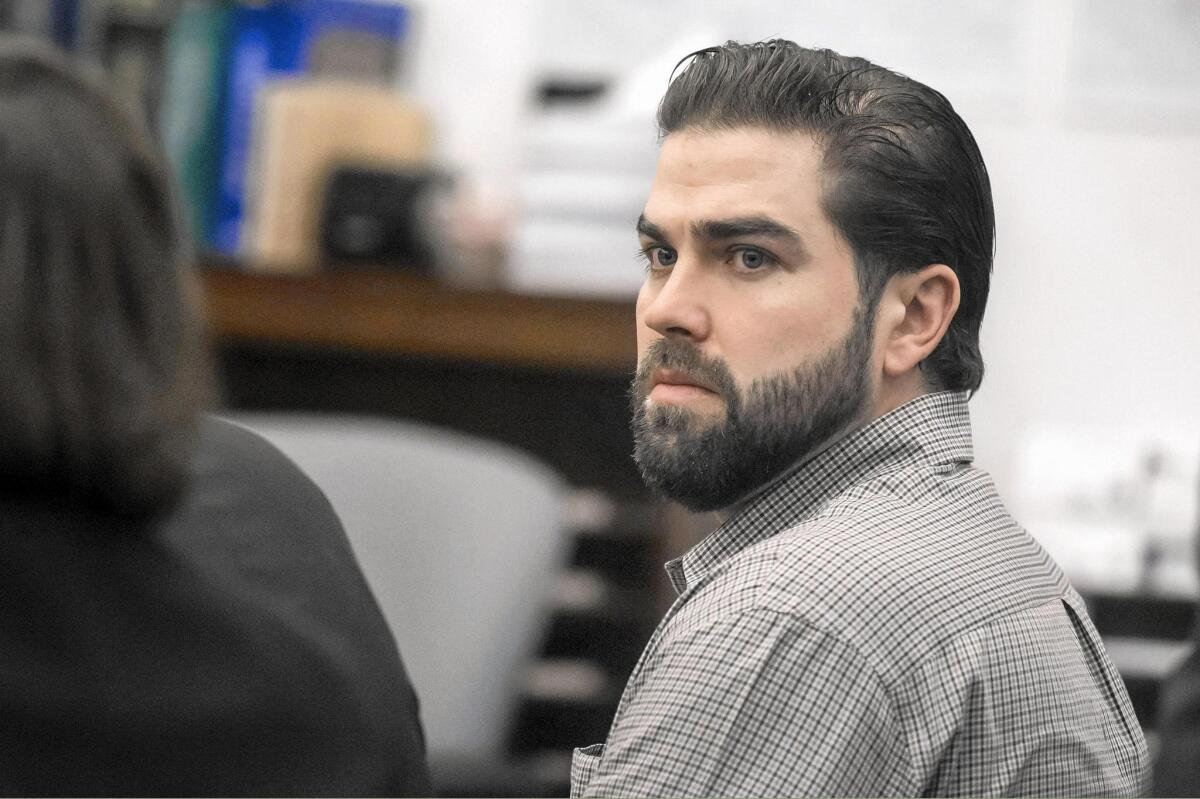Wozniak lawyer not entitled to more information about jailhouse informants, judge says

The attorney for convicted Costa Mesa double murderer Daniel Wozniak does not need to be given any more information about Orange County sheriff’s deputies’ use of jailhouse informants, an Orange County judge ruled Monday, calling the issue a “dead end.”
Wozniak was convicted in December of murdering 23-year-old Irvine resident Julie Kibuishi and her friend Sam Herr, a 26-year-old Army veteran, in 2010.
In January, a jury deliberated for just over an hour before recommending that Wozniak be put to death for the brutal crimes, which included beheading Herr and trying to hide parts of his body in a Long Beach park.
But since the jury’s decision, Wozniak’s lawyer, public defender Scott Sanders, has issued multiple subpoenas to the Orange County Sheriff’s Department seeking information about an informant program at the Orange County Jail.
Sanders alleges the information, which includes years worth of notes from jailers and informants, is vital to proving that local law enforcement routinely keeps critical evidence hidden from death penalty defendants, including Wozniak.
Sanders plans to ask for a new trial for Wozniak based on those accusations.
On Monday, Superior Court Judge John Conley told Sanders that the informant issue has no bearing on Wozniak’s case because prosecutors agreed before his trial that they would not use any evidence gathered through informants.
“The issue of jail informants in the Wozniak case, in the court’s view, is a dead-end road leading nowhere,” Conley said.
Sanders, however, argued that he’s entitled to the information because the Sheriff’s Department has shown it can’t be trusted to turn over evidence helpful to defendants.
He pointed to deputies’ failure in another murder case to turn over inmate records known as TREDs.
And in May, under questioning from Sanders, sheriff’s officials revealed they had found a trove of secret notes that a group of deputies kept about their interactions with inmates, including informants, between 2008 and 2013.
“Judge Conley believes informants are irrelevant because the prosecution chose not to call one as a witness,” Sanders said in a statement Tuesday. “We think if the government wants to have a secret informant program, once we uncover it, we get to know what other informants are housed near our client to investigate whether they observed favorable conduct by our client in custody.”
In May, the Sheriff’s Department gave Sanders portions of the secret log that referenced Wozniak and an informant he spoke to, but the rest of the document was withheld.
According to Sanders, the portion of the log he was allowed to see shows a deputy directed the informant to “illegally obtain statements” from Wozniak.
Furthermore, Sanders argued, the log shows the deputy lied about using informants on Wozniak when Sanders questioned him about the subject during earlier hearings related to Seal Beach mass shooter Scott Dekraai.
Informants have become a key issue in the Dekraai case, in which a judge removed the entire Orange County district attorney’s office from the prosecution for failing to turn over evidence to the defense.
In a statement this month, the district attorney’s office said the Sheriff’s Department should have revealed the secret log years ago.
Prosecutors are now reviewing the document, which is more than 1,100 pages, to see if any defendants were entitled to information it contains.
The district attorney’s office has said the notes indeed appear to contradict testimony given by deputies during the Dekraai hearings.
Conley acknowledged Monday that the Sheriff’s Department appears to have “severe” record-keeping problems, but he said his role is limited to ensuring that Wozniak had a fair trial.
“This court is not the supervisor of the Orange County Sheriff’s Department,” he said.
According to Conley, Wozniak’s guilt was so clear at trial that any impropriety by deputies wouldn’t have changed the jury’s decision.
“The Wozniak case is not a close case,” the judge said.
